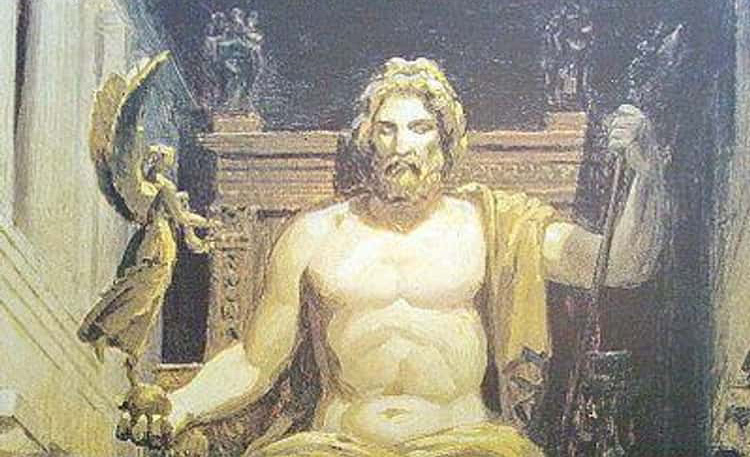Zeus, the name alone evokes images of power, lightning, and dominion over the skies. He’s the king of Mount Olympus, the ruler of the gods in Greek mythology, and a figure whose legend has captivated storytellers and artists for millennia. But Zeus’s story is far richer than just thunder and lightning. It’s a tale of cunning, ambition, family drama, and a complex deity who continues to fascinate us today.
This comprehensive guide will delve into the captivating world of Zeus in Greek mythology. We’ll explore his rise from a hidden childhood to becoming the most powerful god on Olympus. We’ll untangle the web of his relationships, both with his fellow deities and with mortals. His numerous affairs and often-tumultuous family life paint a picture of a powerful being with very human desires and flaws.
But he wasn’t just a lover and a fighter; he was also the enforcer of law and order. We’ll examine his role in establishing a hierarchy among the gods and how his decisions impacted the lives of both mortals and immortals. We’ll also explore the magnificent temples dedicated to him and the rituals performed to appease the king of the gods.
Our journey won’t stop there. We’ll investigate the decline in the belief in Zeus as philosophical thought and Christianity rose in prominence. However, his legacy extends far beyond the pages of ancient myths. His influence can be seen in Roman mythology and continues to inspire writers, artists, and filmmakers today.
So, if you’re ready to embark on a thrilling adventure through Greek mythology, join us as we unveil the mysteries of Zeus. We’ll explore the myths, the history, and the enduring legacy of this captivating god, leaving you with a deeper understanding of this cornerstone of Western culture.
A King’s Rise: Zeus’s Path to Power in Greek Mythology
In the vibrant tapestry of Greek mythology, few figures command the same awe and intrigue as Zeus. The mighty king of the gods, ruler of the skies, and wielder of the thunderbolt, Zeus’s rise to power is a tale brimming with deception, cunning, and ultimate triumph.
Our story begins with Zeus’s parents, the Titans Cronus and Rhea. These powerful beings ruled the cosmos during a primordial age. However, a dark prophecy loomed over Cronus. It foretold that one of his children would dethrone him, just as he had overthrown his own father, Uranus. Fearing this fate, Cronus developed a monstrous solution: he devoured each of his children whole after their birth.
Rhea, however, was determined to protect her youngest child, Zeus. When he was born in a cave on Crete, Rhea devised a cunning plan. She swaddled a large stone and presented it to Cronus, who, in his insatiable hunger, swallowed it whole, believing it to be his newborn son.
Meanwhile, Zeus thrived in secret, hidden away by Rhea on the island of Crete. Raised by the nymph Gaia (Earth) and nurtured by the goat Amalthea, Zeus grew into a powerful young god. Upon reaching adulthood, he retrieved the stone from Cronus’s stomach with the help of Metis, the goddess of wisdom. This act, known as the Metis Deception, is a pivotal moment in Zeus’s journey.
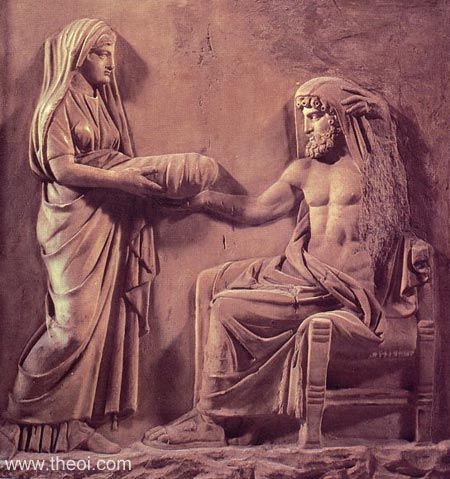
Empowered with newfound knowledge and cunning strategies, Zeus embarked on a daring mission. He rallied his siblings, who had been previously swallowed by Cronus, and together they waged a ten-year war known as the Titanomachy. This epic clash of gods and titans shook the very foundations of the cosmos. With the help of the Cyclopes, who forged Zeus his iconic lightning bolt, and the Hecatonchires, powerful giants with fifty heads and one hundred arms, Zeus and his allies finally prevailed.
Cronus and the other Titans were defeated and cast down into the depths of Tartarus, a dark and dreadful prison beneath the earth. With the Titans vanquished, Zeus ascended to the throne, becoming the undisputed ruler of the gods and establishing his dominion on Mount Olympus.
Thus, through a combination of his mother’s love, his own cunning, and the support of powerful allies, Zeus rose from a hidden infancy to become the most powerful deity in Greek mythology. His reign would usher in a new era on Mount Olympus, shaping the destinies of gods, mortals, and the cosmos itself.
Ruling Olympus: Family, Law, and Legacy in Zeus’s Reign
Ascended to the throne of Mount Olympus, Zeus assumed a multitude of roles that shaped the course of Greek mythology. He wasn’t just the king of the gods; he was the embodiment of the sky and thunder, wielding the fearsome thunderbolt as a symbol of his power. He commanded the very weather, unleashing storms, lightning strikes, and rainfall upon the world below. Farmers and sailors alike looked to the skies, interpreting the thunder and lightning as pronouncements from their celestial ruler.
Zeus shared his Olympian domain with his wife, Hera, the queen of the gods. Their union, however, was far from harmonious. Hera, known for her jealousy and vengeful nature, frequently clashed with Zeus over his infidelity. Despite their tumultuous relationship, Hera bore him three children: Ares, the god of war; Hebe, the goddess of youth; and Hephaestus, the god of fire and metalworking.
Zeus, however, fathered a vast pantheon of gods and goddesses beyond his marriage with Hera. Some, like Athena, the goddess of wisdom and warfare, were born from his own head after he swallowed Metis, the goddess of wisdom, fearing a prophecy of her bearing a son who would overthrow him. Others, like Poseidon, the god of the sea and earthquakes, and Hades, the god of the underworld, were born from his union with Rhea. Demeter, the goddess of agriculture and harvest, and Apollo, the god of music, light, and healing, were products of his affairs with other deities. These divine offspring, known as the Olympians, each held a domain and wielded immense power, shaping various aspects of the world.
Zeus wasn’t just a powerful ruler; he was also the enforcer of law and order. He established a hierarchy among the gods, ensuring a semblance of peace within the Olympian court. He believed that upholding justice, however defined by him, was crucial for maintaining order in the cosmos. He intervened in human affairs as well, dispensing judgments and occasionally enacting punishments for transgressions. Zeus believed that a well-ordered cosmos, both divine and mortal, was essential for prosperity and stability.
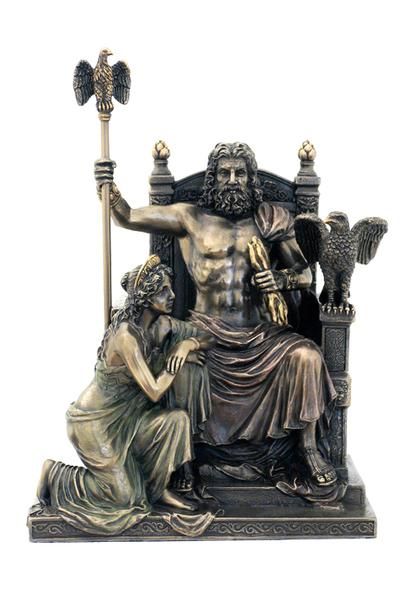
Through his family, his dominion over the natural world, and his role as the enforcer of order, Zeus left an indelible mark on Greek mythology. His reign established the Olympian pantheon as the dominant force in the cosmos, and his actions and decisions continued to influence the lives of both gods and mortals for generations to come.
Myths and Legends: Unveiling the Complexities of Zeus
Zeus, the king of the Olympian gods in Greek mythology, is a figure shrouded in both awe and controversy. His countless myths and legends paint a picture of a powerful and complex deity, far from a simple benevolent ruler.
Zeus’s numerous affairs with both mortals and immortals are a testament to his impulsiveness and insatiable desire. One such story involves Danaë, a princess locked away in a bronze tower by her father to prevent a prophecy of her bearing a powerful son. Zeus, ever resourceful, transformed himself into a shower of gold, breaching the tower’s defenses and impregnating Danaë. Just as Zeus often used his cunning to achieve his desires, the Sphinx in Greek mythology employed her intellect and riddles to challenge and test those who crossed her path, reflecting a common theme of wit and strategy in Greek myths.
Another famous tale showcases both Zeus’s cunning and his capacity for cruelty. Europa, a beautiful princess, was abducted by Zeus who had disguised himself as a white bull. He whisked her away to Crete, where she bore him several sons. This story exemplifies the manipulative tactics Zeus often employed to achieve his desires, like his involvement in the Trojan War (as explored in Was the Trojan Horse Real?), where his motives were driven by personal connections rather than a purely heroic cause..
Zeus’s involvement in the Trojan War further emphasizes his complex character. He didn’t always side with the “righteous” heroes. While he eventually favored the Greeks, he initially showed support for the Trojans due to his relationships with various deities on both sides. This highlights a more pragmatic and self-interested side to Zeus, where personal connections and potential outcomes influenced his decisions. Similarly, in Greek mythology, figures like the Sphinx also displayed a blend of intellect and complexity, using their unique powers to shape their destinies and challenge others.
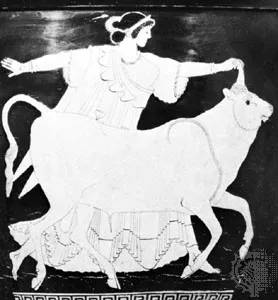
These myths, along with countless others, reveal a Zeus who is far from a one-dimensional figure. He is a powerful ruler, a cunning strategist, a passionate lover, and a sometimes-capricious deity. Understanding these complexities is key to appreciating the richness of Greek mythology and the enduring legacy of Zeus. However, even with all we know, some aspects of Zeus remain shrouded in mystery. The motivations behind his actions, particularly his numerous affairs and sometimes-capricious behavior, continue to be debated by scholars and enthusiasts alike.
Temples and Tributes: Honoring Zeus, King of the Gods
Throughout ancient Greece, magnificent temples served as physical manifestations of devotion to the gods. Among these, sanctuaries dedicated to Zeus held a position of particular significance. The Temple of Zeus at Olympia, for instance, stood as a testament to the king of the gods’ power and majesty. Completed in the 5th century BCE, this Doric temple boasted colossal statues and intricate friezes depicting scenes from Greek mythology. Entrants would have been awestruck by the towering, fluted columns and the imposing scale of the structure, a fitting tribute to Zeus’s dominion.
The rituals performed within these temples were designed to appease and gain favor from Zeus. Animal sacrifices, often bulls or rams, were a common practice. Offerings of food, wine, and precious objects were also presented, accompanied by prayers for rain, victory in battle, or divine justice. Smoke from the sacrifices would rise towards the heavens, symbolically carrying mortals’ pleas to him. Priests played a crucial role in these ceremonies, interpreting omens and acting as intermediaries between the human realm and the divine.
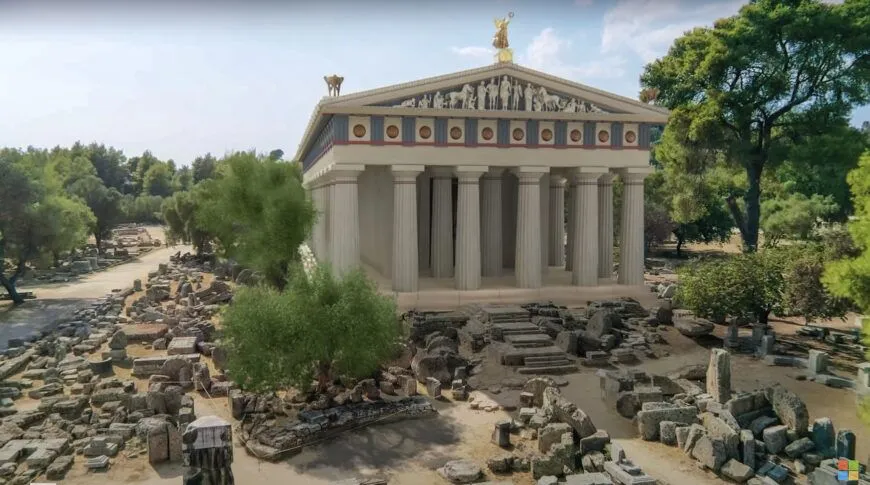
Beyond the confines of temples, another form of worship for Zeus existed – the consultation of oracles. The most famous of these was the Oracle of Delphi. Here, a priestess known as the Pythia would enter a trance-like state, believed to be channeled by Zeus or Apollo, his son. Her cryptic pronouncements were then interpreted by priests, offering guidance on matters of war, politics, and personal endeavors. While the exact mechanisms behind the Oracle are still debated today, its influence on the ancient Greek world was undeniable, further solidifying his position as the ultimate authority.
The construction of grand temples, the performance of elaborate rituals, and the reverence accorded to oracles all demonstrate the profound impact of Zeus worship in ancient Greece. These practices served to connect mortals with the divine, seeking the king of the gods’ favor and guidance in navigating the complexities of life.
The Twilight of the Gods: The Fading Belief in Zeus
The reign of Zeus in the hearts and minds of the ancient Greeks wasn’t destined to last forever. By the dawn of later antiquity, the once-unshakeable belief system began to show cracks. The rise of philosophical thought and the emergence of Christianity presented significant challenges to the traditional Greek pantheon.
Frequently Asked Questions (FAQs)
1. Why did belief in Zeus decline?
The rise of philosophical thought and the emergence of Christianity challenged the traditional Greek pantheon. Philosophers like Plato and Aristotle questioned the literal interpretations of myths and the capricious nature of the gods. Christianity offered a monotheistic worldview with a single, all-powerful God, contrasting with the Olympian gods.
2. Does anyone worship Zeus today?
The worship of Zeus in the traditional sense has faded. However, interest in Greek mythology and its characters continues. Zeus remains a source of inspiration for writers, artists, and filmmakers, and his stories are retold and reinterpreted for modern audiences.
3. How is Zeus relevant in the modern world?
Zeus’s stories grapple with universal human themes like power, love, betrayal, and the complexities of human nature. These themes remain relevant today, and Zeus’s myths continue to inspire and challenge us. Additionally, his influence can be seen in Roman mythology and continues to spark creativity in literature, art, and popular culture.
4. Where can I learn more about Zeus and Greek mythology?
There are many resources available! Explore classic poems by Homer and Hesiod, delve into contemporary retellings, visit museums with Greek mythology artifacts, or watch films and TV shows inspired by these myths.
5. What else can I discover in Greek mythology?
Zeus’s story is just one thread in the rich tapestry of Greek mythology. Explore the pantheon of gods and goddesses, each with unique personalities, domains, and stories. By unraveling these myths, we gain a deeper understanding of the ancient Greek worldview and the power of storytelling.
Philosophers like Plato and Aristotle began to question the literal interpretations of myths and the capricious nature of the gods. They championed reason and logic, paving the way for a more secular understanding of the world. Zeus, once the ultimate authority, started to be viewed as a symbolic figure or a personification of natural forces.
The arrival of Christianity in the Roman Empire delivered a further blow to the belief in Zeus and other Greek deities. Christianity offered a monotheistic worldview with a single, all-powerful God. Its emphasis on compassion, forgiveness, and an afterlife contrasted sharply with the often vengeful and self-serving nature of the Olympian gods. As Christianity gained traction, temples dedicated to Zeus fell into disuse, and the practice of worshipping him gradually faded.
However, the influence of him didn’t vanish entirely. His stories continued to be recounted and analyzed, his character dissected by scholars and artists. The Renaissance witnessed a renewed interest in classical mythology, with Zeus reappearing in paintings, sculptures, and literary works. His image became a powerful symbol of authority, power, and the dramatic forces of nature.
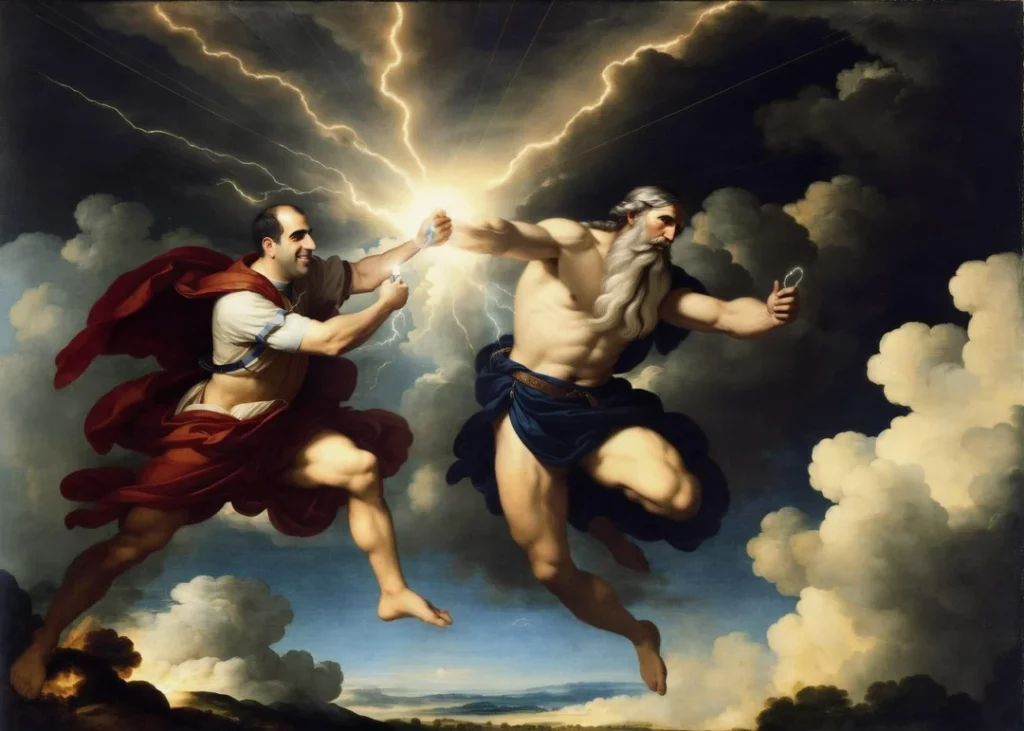
Today, he remains a captivating figure in Western culture. His myths continue to inspire writers, filmmakers, and artists, providing timeless narratives about power, love, betrayal, and the complexities of human nature. While the belief in the literal Zeus of Greek mythology may have waned, his stories and legacy continue to resonate across centuries, a testament to the enduring power of myth.
The Enduring Legacy: Zeus’s Reach Beyond Olympus
The influence of him extends far beyond the snow-capped peak of Mount Olympus. His legacy transcends the boundaries of time and culture, leaving an indelible mark on various aspects of the world around us.
Zeus’s impact is most evident in Roman mythology, where he finds a counterpart in the god Jupiter. Borrowing heavily from Greek mythology, the Romans adopted many of the core narratives, with Jupiter assuming the role of the king of the gods. Jupiter’s depiction mirrored him in many ways, wielding lightning as a weapon and embodying the sky and thunder. This Roman adaptation demonstrates the pervasive influence of his character and the enduring power of Greek myths.
Zeus continues to captivate us in the modern world. Literature has long been a fertile ground for reimagining his stories. From the epic poems of the Iliad and the Odyssey to contemporary fantasy novels like Rick Riordan’s Percy Jackson & the Olympians series, Zeus remains a source of inspiration for authors. These retellings offer fresh perspectives on the myths, often exploring themes of power, family dynamics, and the consequences of choices, making them relevant to audiences today.
The realm of art is another domain where Zeus continues to reign supreme. From the majestic marble sculptures of ancient Greece to the dynamic paintings of the Renaissance, artists have immortalized him in various forms. These depictions capture his power, majesty, and sometimes, his flaws, offering a visual window into the world of Greek mythology. In popular culture, he also finds a prominent place. He appears in films like “Clash of the Titans” and video games like “God of War,” often portrayed as a powerful and complex figure. These modern interpretations highlight the ongoing fascination with Zeus and the potential for these myths to be reimagined for new audiences.
Zeus’s stories continue to inspire and challenge us because they grapple with universal human themes. His struggles for power, his complex relationships with family and lovers, and his role as a ruler all resonate with our own experiences. These myths invite us to question authority, explore the consequences of our actions, and contemplate the complexities of human nature.
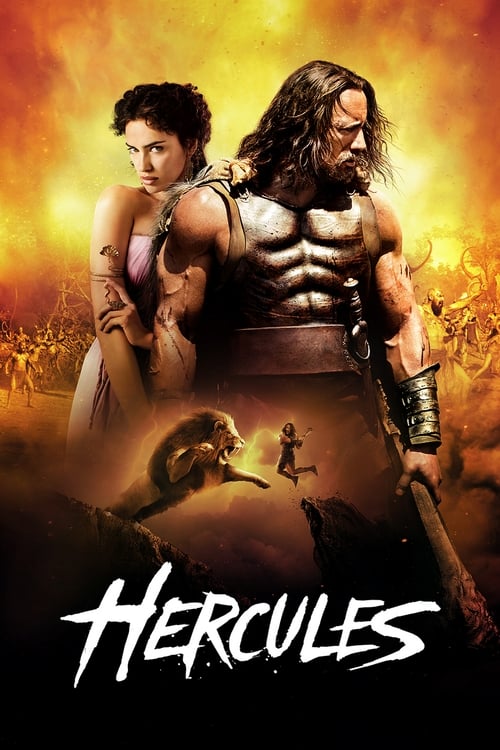
He may no longer be worshipped on mountaintops, but his legacy endures. He serves as a reminder of the enduring power of storytelling and the timeless themes embedded within Greek mythology. As we continue to explore his myths, we gain a deeper understanding of ourselves and the world around us. Whether encountered in a dusty ancient text, a captivating novel, or a thrilling video game, his influence remains potent, reminding us of the enduring power of myth.
A God for All Ages: Unveiling the Mysteries of Zeus
Zeus, the king of the gods in Greek mythology, is a figure shrouded in both legend and intrigue. Our exploration of his story has revealed a complex deity who rose from a hidden childhood to become the ruler of Mount Olympus. He wielded the power of the sky and thunder, enforcing order among the gods and influencing the lives of mortals. His numerous affairs and often-tumultuous relationships paint a picture of a powerful deity with a human capacity for desire and impulsiveness.
Zeus’s legacy extends far beyond the pages of ancient myths. His influence can be seen in Roman mythology through his counterpart Jupiter, and his stories continue to inspire and challenge readers and viewers in literature, art, and popular culture today. Zeus’s myths grapple with timeless themes of power, love, betrayal, and the complexities of human nature, making them endlessly relevant.
However, even with all we know, some aspects of him remain shrouded in mystery. The motivations behind his actions, particularly his numerous affairs and sometimes-capricious behavior, continue to be debated by scholars and enthusiasts alike. Did his actions stem from a genuine desire for love or a need to assert his dominance? These unanswered questions invite us to delve deeper into the complexities of his character and the rich tapestry of Greek mythology.
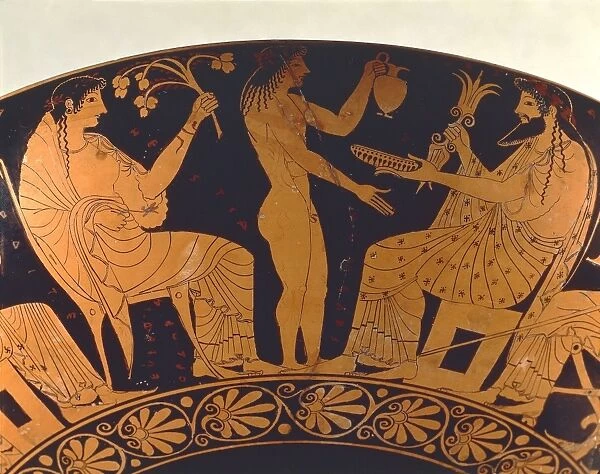
If you’re curious to learn more about Zeus and the fascinating world of Greek mythology, there’s a treasure trove of resources waiting to be explored. Delve into the classic poems of Homer and Hesiod, or lose yourself in the captivating stories of contemporary retellings. Visit museums that house ancient artifacts depicting scenes from Greek myths, or watch films and television shows that draw inspiration from these timeless tales.
Zeus’s story is just one thread in the vibrant tapestry of Greek mythology. As you explore further, you’ll encounter a pantheon of gods and goddesses, each with their own unique personalities, domains, and stories. By unraveling these myths, we gain a deeper understanding of the ancient Greek worldview and the enduring power of storytelling. So, embark on this journey of discovery, and allow him and the other Olympians to transport you to a world of myth, magic, and timeless wonder.


